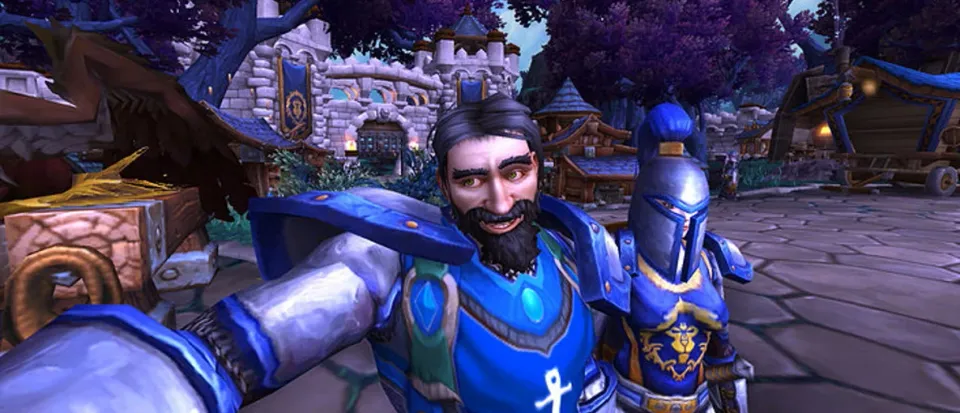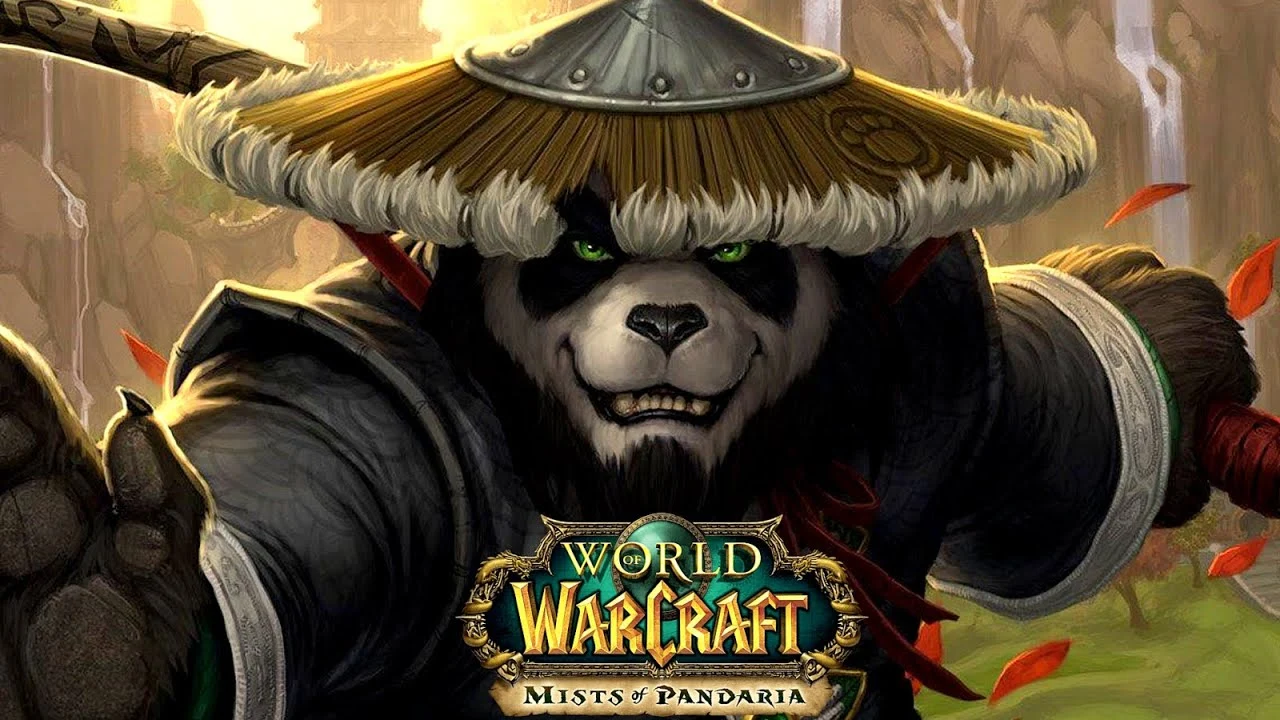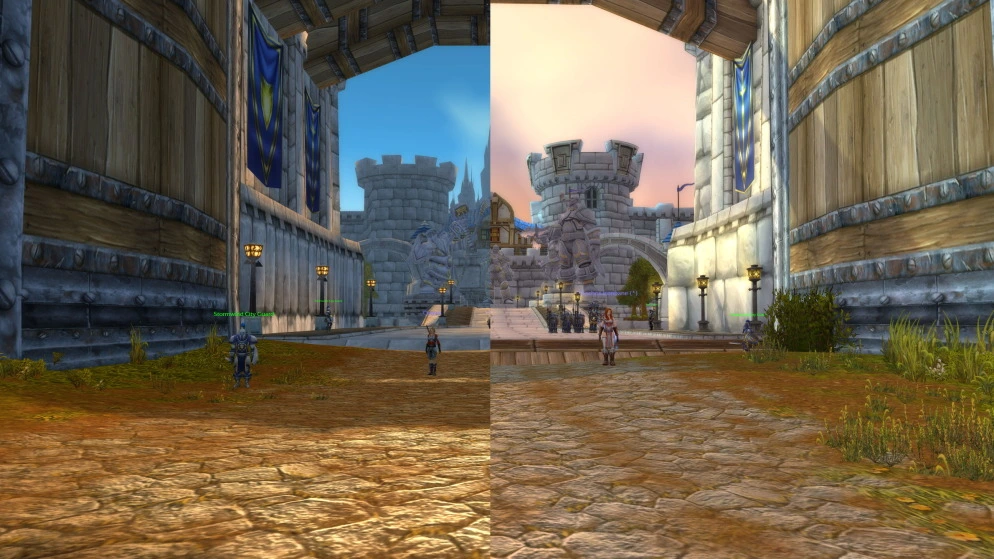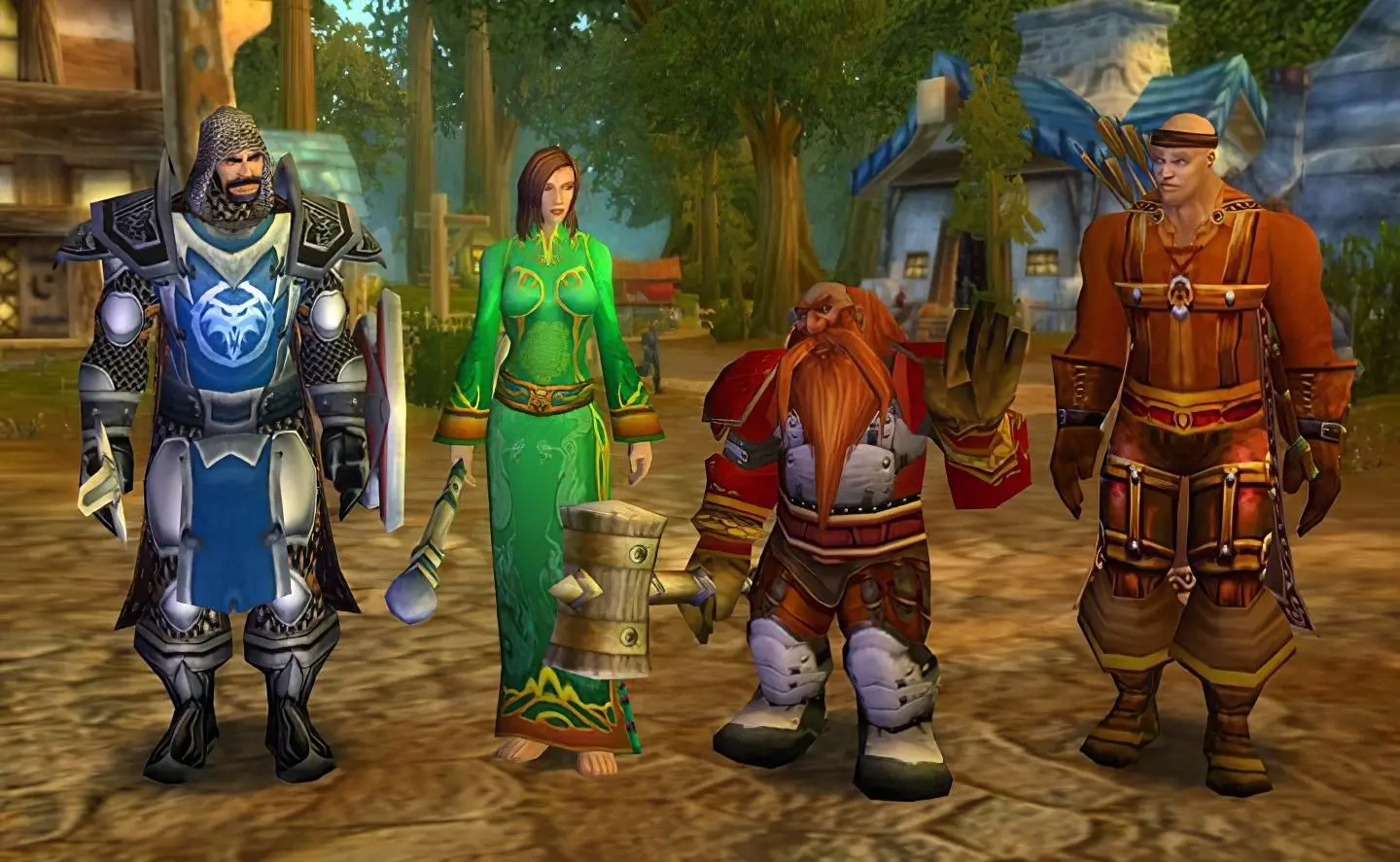crypto
hardcoreStake – official betting partner of Vitality

crypto
hardcoreStake – official betting partner of Vitality
Team up with
the champions! Stake – official betting partner of Vitality
Gaming
08:51, 14.05.2024
2

World of Warcraft is undoubtedly a classic among all MMORPGs, which practically everyone familiar with video games has heard of, even if they've never played it themselves. At the end of this year, this series will celebrate its 20th anniversary. It might seem that World of Warcraft has exhausted itself over all these years and players have lost interest in it, but that's not the case. Despite controversial decisions by Blizzard and criticism of some expansions, this game remains one of the most popular MMOs, and overall online activity still demonstrates fairly high numbers.
Over all these years, the game has seen several narrative expansions and a whole bunch of content to expand gameplay aspects, which were constantly changing and improving. New races, classes, equipment systems, events dedicated to various holidays, and more have been introduced. Comparing what World of Warcraft was like 20 years ago to what it is now, in some ways, it's almost like two different games, as many fundamental changes have taken place. All of this prompted developers to return to the roots. For the sake of the old fan base, Blizzard released separate clients of the game World of Warcraft: Classic and World of Warcraft: Wrath of the Lich King Classic a few years ago, allowing players to experience the "vanilla" versions.
And here arises the question: which is better, the classic version of the game as it was at the beginning, or the one that meets more modern player demands? This question will be discussed based on the author's personal experience, who tried both clients and formed certain impressions of their gameplay based on the first month of playing World of Warcraft.

My acquaintance with the Warcraft story began with the third instalment, which captivated me with its characters, story, and gameplay. Many years later, I was lucky to try World of Warcraft: Mists of Pandaria, which was the current expansion at the time. Due to my age and limited experience with Blizzard subscription systems, I had to play only the trial version, which allowed levelling up to level 20. At that time, I knew absolutely nothing about what the game was except that it was a continuation of my favourite series.
World of Warcraft captured me from the moment I launched it, starting with the sound design and cinematic. The character selection, customisation, and choice of races and classes were all exciting to me, as was the gameplay, which was fundamentally different from strategy games. However, the level restriction didn't allow me to fully enjoy the game and see a significant portion of the content. But the storyline, dialogues, and familiar characters kept me engaged throughout the game, although there were many confusing moments in terms of acquainting myself with certain game mechanics, as well as understanding what I had to do. Which I remembered when I tried World of Warcraft again a few years later.

Not long ago, I decided to dive back into the world of this game. It's been a month now since I've been mastering World of Warcraft, and exploring its various components. This time, my gaming experience was divided into two clients: World of Warcraft Retail and World of Warcraft Classic.
Compared to the one I played before, the current version of the game has undergone some changes: the graphics have become much better, the UI has also been updated, becoming more compact, and the visual part meets the modern demands of games. And, in my opinion, this is a significant plus. Very often, MMORPGs have overloaded interfaces, which can confuse players, not understand what is needed and even descriptions don't help in such situations. Some windows have changed, and new mechanics have appeared, but the overall pace of the game has remained, or I would even say, it has become faster, but in general, it's still the same WoW that I remembered. Although truth be told, that inner "magical" feeling from the game that was present before was not there this time.
World of Warcraft Classic is essentially the original version of the game from 2004. It's hard to say whether it's completely identical to it, but in general outlines, it is. Here, none of these innovations, expansions, or mechanics are present in the current version of the game. There is none of this content and many locations, and everything is limited to Azeroth where only Kalimdor and the Eastern Kingdoms are present. Playing classic WoW feels just like playing the modern one, but some elements of gameplay make it somewhat different in perception and gaming experience, and in many ways, more challenging. And comparing both games, there is something to say and to compare.


Classic World of Warcraft is primarily focused on gameplay. There's no cohesive storyline as such. Some local events can be learned from dialogues when taking a quest, but they don't carry any significant narrative weight and have no direct connection to the events of Warcraft III. All that is known is that the Horde and the Alliance continue their years-long enmity for the right to control resources, land, expand influence, and so on.
By the time of World of Warcraft: Dragonflight, the game had undergone many narrative expansions that greatly expanded the lore of this world: the fall of the Lich King, the Cataclysm, the appearance of new continents, various wars, and much more. All these events led to a re-canon that, as a player of the third part of Warcraft, I had to explore a bit to understand what was happening now. It would have been easier if the game had a coherent presentation of the lore. When a player starts playing WoW Retail, regardless of whether they are familiar with the sources or not, the chaotic narrative structure is very problematic.
Suppose I just logged into the game, created a character, and I'm thrown into some events, and it's unclear at what point in time all this is happening. While playing WoW, you complete various quests and meet seemingly familiar characters, but the game lacks a cohesive storyline. Players are mostly thrown into events of the current or some previous expansion, and to understand the story, which is what I primarily love about WoW, I have to watch videos on the internet or read various lore articles. Yes, you can play old expansions, but the online presence in those locations is smaller, and the content they offer is essentially outdated. Moreover, it's not immediately clear how to play old content; there are no hints or interactive menus for this. You're just released into the world, and where your journey will take you, you don't know, and it might be that due to ignorance, you're doing irrelevant content, wasting time.
In my opinion, at the beginning of the game, Blizzard could have done something like video flashbacks that would briefly describe the events of past expansions. And the game content should correspond strictly to the current expansion, with the ability to go to the required expansion without mixing everything.

I've already touched on the graphics issue partially. World of Warcraft Classic is visually and morally outdated: low-detail textures, blurry graphics, a small number of polygons in models, subdued colour gamma, and so on. Classic Warcraft definitely won't suit people for whom graphics are a critical element of the game. I don't have such problems. I easily accept games with any graphical component since I love retro. Compared to WoW Retail, the user interface is somewhat bulkier, but still not overloaded.
The current version of the game can boast modern visuals. Of course, it doesn't look ultra-realistic, but rather like a high-quality cartoon with interesting stylistic and colour expressiveness. The quality of effects is much better, as modern game development technologies have allowed developers to implement the most fascinating design solutions. And the real highlight is and remains the game cinematic, which are pleasant to watch because the animation there is also top-notch.

Both versions of the game offer the player tutorials to familiarise them with the basic aspects of the game. WoW Classic does this unobtrusively through hint notifications that describe certain game mechanics, what each icon is for, and so on. However some details remain overlooked, such as the dungeon system. After Retail, it wasn't obvious to me how dungeon and raid queues work here. That is, you have to write in the chat that you plan to go to a particular dungeon and look for players of appropriate roles for that dungeon. And for me, it's not very convenient in all aspects.
World of Warcraft Retail allows the player to go through a separate training mode, where they also familiarise themselves with the basic mechanics, including dungeon runs. Everything is done qualitatively, there is even some small storyline around it. However, for some, this may seem a bit drawn-out, and unlike the classic version, where we are immediately allowed to fight enemies, and cast various spells, here you have to go through an introduction.
Nevertheless, some aspects of the game remain overlooked by both versions. The player will have to delve into some game mechanics independently, what it is for, how it works through trial and error, as well as by reading game forums.


The greatest difference between Classic and Retail unquestionably lies in the difficulty and progression system. The Classic version offers a more challenging and slower-paced gameplay. Dealing with a group of mobs is practically impossible as they will easily overpower you. Sometimes, it's even difficult to handle a single mob that is a few levels higher than the player. Completing quests involving killing certain types of enemies often requires pulling them one by one to avoid aggravating others nearby. Fighting mobs of "green" difficulty is easier and best for farming experience, as "yellow" and "red" enemies will simply overpower you, especially if you haven't obtained proper gear.
In WoW Retail, such problems don't exist. Players can easily handle multiple enemies at once. Additionally, the amount of gold and experience points received by the character is greater, allowing for faster levelling and progression. Unlike Classic, the level of mobs in Retail scales with the player. While in Classic, the difficulty level is tied to specific zones, in Retail, enemy levels increase according to yours, although they remain significantly weaker. It takes about 20-30 hours to reach level 20 in Classic, while in the current version, it takes only 8-10 hours. Therefore, levelling alts in the current version is faster and easier.
If we imagine two identical situations where a player is fleeing from a group of mobs in WoW Classic and Retail, they would have different contexts. In the first case, the player is fleeing from danger because they won't be able to handle it, while in the second case, the player is gathering a group of mobs to farm them using their abilities.
The current version of the game doesn't present much of a "challenge" for players unless it's specific dungeons, raids, or other content with increased difficulty. You simply walk around, enjoy the atmosphere, complete quests, kill mobs, or engage in other activities. In WoW Classic, encountering difficulty can happen almost from the beginning of the game, so the availability of healing potions, food, and good gear plays a more crucial role than in WoW Retail.

Another important difference between the versions is the approach to gameplay and its elements. If you take a hero of the same race, class, and specialisation in both games, the experience will be completely different, as well as their implementation. WoW Classic feels stricter towards the player's actions: their movements, ability rotations, resource management, target prioritisation during combat, and so on.
The combat system is identical, but with one "but." Fighting enemies in Classic often results in misses, and opponents parry or block some of your attacks. This is one of the reasons that make the combat system more challenging and unique compared to the Retail version.
While playing Classic, you may notice differences in player behaviour. Those who run by might buff you with some temporary effects that can help you for the next few minutes during combat or when travelling from point A to point B. These buffs provide additional parameters like defence, positive effects, movement speed, or attack speed. In Retail, these buffs hardly play any significant role outside of serious dungeons or raids, as players can easily handle most challenges without them.
In WoW Classic, to learn a new ability and level it up, you have to find a trainer and learn or upgrade the ability for a certain amount of coins. The Retail version doesn't have such trainers. All abilities are learned automatically upon reaching the corresponding level.
The same goes for character talents. To change talents in Classic, you need to find a specific NPC who will reset your talents for a fee, allowing you to redistribute your talent points. In Retail, you can do this on the fly, adapting to different requirements and content without spending any coins on this process.
Resource management in the vanilla version is also given more attention. This applies to consumable materials, especially food, and potions for restoring health or mana, as well as gold, which is harder and takes longer to farm than in Retail due to differences in the in-game economy.

It's worth mentioning that the "vanilla" version of the game is more challenging in terms of quest navigation. When you accept a quest, you aren't shown where to go, where to find an item, or which mob to kill. To do this, you need to carefully read the quest dialogue and follow the instructions to reach your goal. An addon called Questie can make this easier by showing everything needed to complete the current quest, even more detailed than in the current game.
In WoW Retail, it's simpler as quest zones are displayed on the minimap. The necessary items you can interact with in Classic are hardly distinguished from other objects and textures, which can sometimes be confusing, whereas, in the current game, such items have a brighter texture and a shimmering effect.


I enjoy both games because they offer a different gaming experience that can't be called identical in any way, even though they are essentially the same game. Both games have their pros and cons, both subjective and objective, which influence each person's choice of which version to play.
If you want a more challenging and immersive game experience, even if there isn't a ton of content, and you're not put off by outdated graphics, then World of Warcraft Classic is a great choice. The gameplay features of this game will help you become a seasoned and experienced player.
On the other hand, WoW Retail offers players a fast-paced game and plenty of content to enjoy solo or with friends. You can explore every corner of Azeroth and other lands, participate in various events, and try out new mechanics and features that WoW Classic won’t ever offer.
Comments1